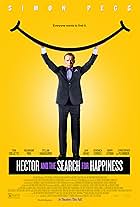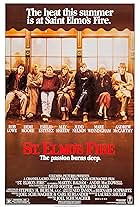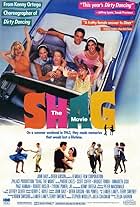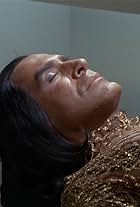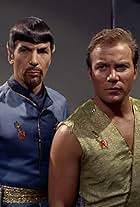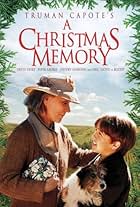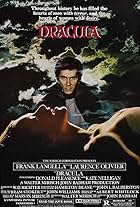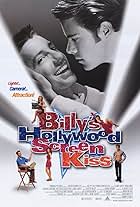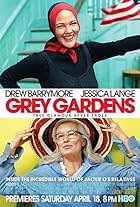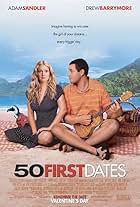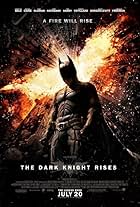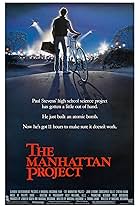budmassey
Joined Jul 2000
Welcome to the new profile
We're still working on updating some profile features. To see the badges, ratings breakdowns, and polls for this profile, please go to the previous version.
Ratings243
budmassey's rating
Reviews154
budmassey's rating
The Star Trek franchise has been mined for decades practically to depletion. And while little would be gained from endlessly resuscitating the canon version, it seemed nevertheless a courageous, almost dangerous act to so completely reboot a body of work that has worked through ten movies and six series and wipe the slate clean as Abrams did with this film's predecessor. For a true Star Trek fan, it was a hard pill to swallow at first, but only at first.
J.J. Abrams' courage gave us almost everything we love most about Star Trek, with the inevitable exception of those things we could not have – the original cast. The characters remain in place, gamely reimagined at the beginning of their careers, rather than, as we eventually came to know them, at the end. Of course, it would have been easy to expect a new and improved telling of the canon, complete with new and improved visual effects. Instead, we got a stunning opportunity to see our beloved comrades explore new adventures without the necessity, or tedium, of a simple retelling.
In this sequel, however, Abrams constructs delicately, almost lovingly, a story where familiar elements are unavoidable, but one where they are weaved into a thoroughly satisfying and viscerally thrilling path to endless years of new delight for Trekkers everywhere.
The cast are learning to occupy their roles, with one notable exception. Zachary Quinto is positively delightful as Spock, a role he clearly shows the ability to wear comfortably and expand in surprising new directions. Simon Pegg is Scotty on Steroids – funnier, crankier, and vastly more entertaining. Perhaps most impressive is Karl Urban as McCoy. He is spot on perfect, almost disturbingly so, portraying McCoy just was we would have expected, while at the same time compensating for some of the thespian shortcomings of DeForest Kelly.
The glaring disappointment is Chris Pine as Kirk. Pine lacks even a hint of the powerful machismo of William Shatner, depending instead on simple unwarranted bravado. He comes across less as a hero and more of a simple jerk, and his wanton womanizing is less romantic than simply debauched. It is perhaps ironic that Shatner, long lambasted for his acting, ends up being the most difficult actor to replace convincingly.
To be fair, a fully satisfying replacement was probably not possible, as Shatner, for all his limitations, has, after decades of accretion, evolved into a once in a lifetime commodity. Still, it is difficult not to see Pine as miscast. But then, who? Channing Tatum? Chris Hemsworth? Most likely unavailable, so we have Pine.
The story is pure gold, pure Star Trek. It draws upon familiar themes and characters and casts them in brilliant directions. At times, this film seems almost a tribute to the legacy Abrams seemed to be totally rejecting in the prequel. Stunningly, startlingly brilliant and persuasive evidence that Abrams is the only man with whom fans can entrust, not only our beloved Star Trek, but, it turns out, the other crown jewel of Sci-Fi fandom – Star Wars, the new episode of which Abrams will also direct.
I wondered during the movie whether those less familiar with the Star Trek canon would appreciate the many subtle inside jokes and references. To be sure, there were many that were not so subtle, but it seems obvious that people who are relatively uninitiated with get less out of the movie than hard core fans.
I'm not even going to discuss the plot details. Suffice it to say that nobody should leave the theatre disappointed, no matter what they were expecting. As for me, I left feeling as though all my years of devotion to Star Trek were fully rewarded, and renewed by this, one of the most magnificent achievements in the series' nearly half a century of delighting fans of all ages.
J.J. Abrams' courage gave us almost everything we love most about Star Trek, with the inevitable exception of those things we could not have – the original cast. The characters remain in place, gamely reimagined at the beginning of their careers, rather than, as we eventually came to know them, at the end. Of course, it would have been easy to expect a new and improved telling of the canon, complete with new and improved visual effects. Instead, we got a stunning opportunity to see our beloved comrades explore new adventures without the necessity, or tedium, of a simple retelling.
In this sequel, however, Abrams constructs delicately, almost lovingly, a story where familiar elements are unavoidable, but one where they are weaved into a thoroughly satisfying and viscerally thrilling path to endless years of new delight for Trekkers everywhere.
The cast are learning to occupy their roles, with one notable exception. Zachary Quinto is positively delightful as Spock, a role he clearly shows the ability to wear comfortably and expand in surprising new directions. Simon Pegg is Scotty on Steroids – funnier, crankier, and vastly more entertaining. Perhaps most impressive is Karl Urban as McCoy. He is spot on perfect, almost disturbingly so, portraying McCoy just was we would have expected, while at the same time compensating for some of the thespian shortcomings of DeForest Kelly.
The glaring disappointment is Chris Pine as Kirk. Pine lacks even a hint of the powerful machismo of William Shatner, depending instead on simple unwarranted bravado. He comes across less as a hero and more of a simple jerk, and his wanton womanizing is less romantic than simply debauched. It is perhaps ironic that Shatner, long lambasted for his acting, ends up being the most difficult actor to replace convincingly.
To be fair, a fully satisfying replacement was probably not possible, as Shatner, for all his limitations, has, after decades of accretion, evolved into a once in a lifetime commodity. Still, it is difficult not to see Pine as miscast. But then, who? Channing Tatum? Chris Hemsworth? Most likely unavailable, so we have Pine.
The story is pure gold, pure Star Trek. It draws upon familiar themes and characters and casts them in brilliant directions. At times, this film seems almost a tribute to the legacy Abrams seemed to be totally rejecting in the prequel. Stunningly, startlingly brilliant and persuasive evidence that Abrams is the only man with whom fans can entrust, not only our beloved Star Trek, but, it turns out, the other crown jewel of Sci-Fi fandom – Star Wars, the new episode of which Abrams will also direct.
I wondered during the movie whether those less familiar with the Star Trek canon would appreciate the many subtle inside jokes and references. To be sure, there were many that were not so subtle, but it seems obvious that people who are relatively uninitiated with get less out of the movie than hard core fans.
I'm not even going to discuss the plot details. Suffice it to say that nobody should leave the theatre disappointed, no matter what they were expecting. As for me, I left feeling as though all my years of devotion to Star Trek were fully rewarded, and renewed by this, one of the most magnificent achievements in the series' nearly half a century of delighting fans of all ages.
Watching this film requires a few concessions.
First, you must imagine the elegantly beautiful 1974 classic version does not exist. Trust me. It's painful otherwise, and I will avoid any reference or comparison for that reason. Second, you must also imagine that, notwithstanding Fitzgerald's masterpiece, the setting is not the Roaring Twenties but, rather, some over amped time warp netherworld where Jay-Z and Beyonce' get to be avant garde again because they're rather incongruously and anachronistically foisted on a film in which they really have no place.
If you make it that far, you're almost ready to watch The Great Gatsby 2013. Now brace yourself for Baz Lurhrmann's jarring postmodern deconstructivism that was thrilling a decade ago in Moulin Rouge, but has become by now almost as grotesque as Julie Taymor's murderous affront to Beatle music – Across the Universe.
Thus prepared, you can now enjoy what is undeniably an entertaining, if uninspiring, film.
Tobey Maquire, of whom I am usually a fan, is somewhat flaccid as Nick Carroway, despite the fact that the story depends utterly upon him to drive it forward. He does, however, bring a decidedly literary dimension to the film by framing the main story within his own attempt at recovery. Joel Edgerton is a perfectly delightful Tom Buchanan. He embodies all the machismo brutishness with which Fitzgerald envisioned the character. He also has enough personal charisma to help anchor the otherwise riotous staging. And, of course, there is DiCaprio as Gatsby. I didn't hate him, although I was predisposed to, but I wanted to love this movie, and Leo was one of the main reasons I couldn't.
As far as casting, however, the jewel of this film is the deliriously sensuous and beautiful Carey Mulligan as Daisy Buchanan. She makes it easy to believe that Daisy broke hearts with just a smile back in Louisville and inspired Gatsby to bring the world to her dock for her sake.
This film mines Fitzgerald's novel for more complex themes than predecessors have explored. Sometimes it works, and sometimes it doesn't. Ironically, it also strips all the novel's major themes of any subtlety whatsoever and reduces them to stage settings for an unrelenting onslaught of elaborate music videos.
But if I reel in my disappointment for a moment, I can only conclude that this is a well-made movie that is seductively entertaining and visually magnificent. Maybe it isn't fair to expect more.
First, you must imagine the elegantly beautiful 1974 classic version does not exist. Trust me. It's painful otherwise, and I will avoid any reference or comparison for that reason. Second, you must also imagine that, notwithstanding Fitzgerald's masterpiece, the setting is not the Roaring Twenties but, rather, some over amped time warp netherworld where Jay-Z and Beyonce' get to be avant garde again because they're rather incongruously and anachronistically foisted on a film in which they really have no place.
If you make it that far, you're almost ready to watch The Great Gatsby 2013. Now brace yourself for Baz Lurhrmann's jarring postmodern deconstructivism that was thrilling a decade ago in Moulin Rouge, but has become by now almost as grotesque as Julie Taymor's murderous affront to Beatle music – Across the Universe.
Thus prepared, you can now enjoy what is undeniably an entertaining, if uninspiring, film.
Tobey Maquire, of whom I am usually a fan, is somewhat flaccid as Nick Carroway, despite the fact that the story depends utterly upon him to drive it forward. He does, however, bring a decidedly literary dimension to the film by framing the main story within his own attempt at recovery. Joel Edgerton is a perfectly delightful Tom Buchanan. He embodies all the machismo brutishness with which Fitzgerald envisioned the character. He also has enough personal charisma to help anchor the otherwise riotous staging. And, of course, there is DiCaprio as Gatsby. I didn't hate him, although I was predisposed to, but I wanted to love this movie, and Leo was one of the main reasons I couldn't.
As far as casting, however, the jewel of this film is the deliriously sensuous and beautiful Carey Mulligan as Daisy Buchanan. She makes it easy to believe that Daisy broke hearts with just a smile back in Louisville and inspired Gatsby to bring the world to her dock for her sake.
This film mines Fitzgerald's novel for more complex themes than predecessors have explored. Sometimes it works, and sometimes it doesn't. Ironically, it also strips all the novel's major themes of any subtlety whatsoever and reduces them to stage settings for an unrelenting onslaught of elaborate music videos.
But if I reel in my disappointment for a moment, I can only conclude that this is a well-made movie that is seductively entertaining and visually magnificent. Maybe it isn't fair to expect more.
All right. I've said this before, and I'll say it again. Christopher Nolan is a great director. Few people can put a story on the screen like Nolan does. But the problem is that he's a terrible writer. How many more times does he have to absolutely assassinate a perfectly good story idea or character franchise with his amateurish, ham-handed writing before he and everyone else realizes this?
First, he always sets clocks in motion. Really? Is that all you've got? A real writer can create a sense of urgency based on time constraints without introducing an actual clock, especially one that is strapped onto a device that seems to have no other need of a clock than to display its imminent intent to blow everything to kingdom come.
Then of course, there's character development, or the lack of it. Batman is conflicted as to whether he should be Batman or not. Bane is conflicted by, oh, let's say puppy love. Catwoman is conflicted by whether or not she really wants to be bad. I mean, I know this whole franchise is based on a comic book, but with a price tag of a quarter of a billion dollars to make, does it have to play like one? Come on, Chris. Hire a writer.
Basically, this is a movie that consists of lots of scenes of people either fighting, or walking aggressively toward a fight, with the central characters standing still like a Greek chorus of narrators long enough to tell the story, rather than participate in it, by presenting long, boring diatribes and monologues like a bunch of kids breathlessly setting forth a cowboys and Indians scenario before they run around whooping and shooting, only to repeat, in this case for three tedious, exasperating hours.
I love superhero movies when they are able, like all good science fiction, to transcend their admittedly contrived premises by presenting witty and profound issues in clever and unique ways without hammering you over the head or numbing your brain with endless sequences of violence and destruction. Once again, Chris, you have failed in the former by wallowing in the latter.
First, he always sets clocks in motion. Really? Is that all you've got? A real writer can create a sense of urgency based on time constraints without introducing an actual clock, especially one that is strapped onto a device that seems to have no other need of a clock than to display its imminent intent to blow everything to kingdom come.
Then of course, there's character development, or the lack of it. Batman is conflicted as to whether he should be Batman or not. Bane is conflicted by, oh, let's say puppy love. Catwoman is conflicted by whether or not she really wants to be bad. I mean, I know this whole franchise is based on a comic book, but with a price tag of a quarter of a billion dollars to make, does it have to play like one? Come on, Chris. Hire a writer.
Basically, this is a movie that consists of lots of scenes of people either fighting, or walking aggressively toward a fight, with the central characters standing still like a Greek chorus of narrators long enough to tell the story, rather than participate in it, by presenting long, boring diatribes and monologues like a bunch of kids breathlessly setting forth a cowboys and Indians scenario before they run around whooping and shooting, only to repeat, in this case for three tedious, exasperating hours.
I love superhero movies when they are able, like all good science fiction, to transcend their admittedly contrived premises by presenting witty and profound issues in clever and unique ways without hammering you over the head or numbing your brain with endless sequences of violence and destruction. Once again, Chris, you have failed in the former by wallowing in the latter.


